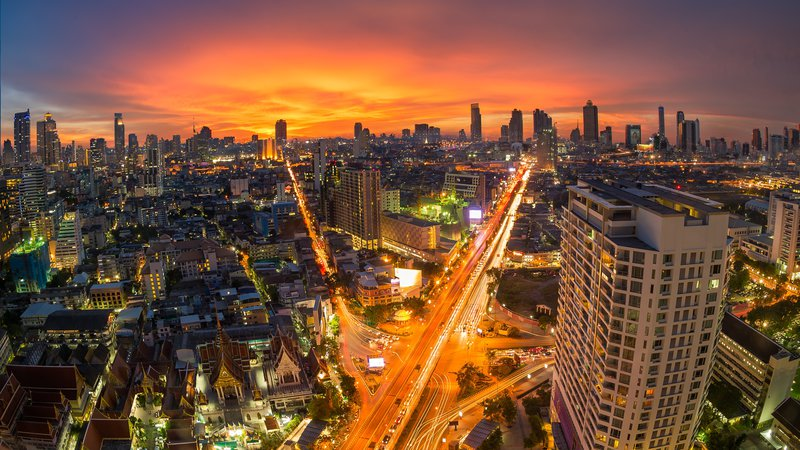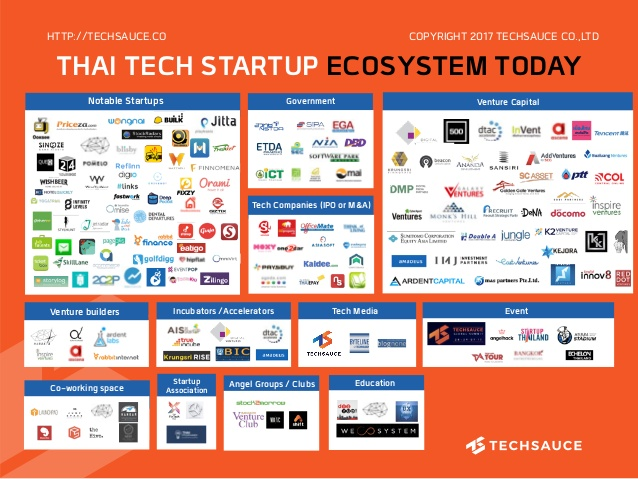Things You Should Know Before Relocating to Thailand

Every year, hundreds of thousands of foreigners migrate to Thailand for work. I was one of them
Seduced by sunset beaches, endless tropical summers and the dusky metropolis, it doesn’t take much convincing to migrate to the ‘Land of Smiles’.
Hold on! Before you pack your bags and head for the airport, here are some things you should know about living and working in Thailand
1. It Helps to Speak Thai
This seems obvious, but can’t be overstated. Even for those working in a multinational office in the globalised megacity of Bangkok, a little Thai goes a long way. Thai people might be extremely friendly and happy to communicate in English regardless of proficiency, but I’ve witnessed firsthand the difference a simple Thai phrase can make.
2. Even Charity Work Requires a Work Visa
All foreigners who wish to work in Thailand need both a non-immigrant visa, and a work permit. Your future employer may apply for the work permit on your behalf, but can only be issued once you’ve entered Thailand in accordance with immigration laws, and must be received in person. Be prepared to provide mountains of paperwork and thorough details; including your mother’s birthday, your Facebook ID and your blood type. Bear in mind that Thai law carries a broad definition of ‘work’, which includes voluntary / unpaid work, part-time jobs as well as attending conferences and meetings.

3. Cash is King
With the exception of major department stores, high-end restaurants and hotels, payment by card is not a readily available option. All foreign credit cards will be charged a foreign exchange fee, and application for local credit cards can be timely process. Though ATMS are plenty available, withdrawals from foreign accounts will be levied a minimum charge of THB 200 per transaction. Be sure to always have cash in hand, for easy transactions.
Bonus tip: Small change is particularly handy when dealing with bolshy taxi drivers, who will claim to have none, as a sneaky way to overcharge.
4. Manners Matter
Thai people are exceptionally well-mannered, to the extent of avoiding saying no. This is reflected in the language, with “yes” meaning chai, but the closest thing to “no” is mai chai, which translates to “not yes”. Thais pride themselves on being gracious, and will go out of their way to be accommodating. For this reason, foreigners may come across as brash and abrasive. To avoid this, be sure to affix the appropriate ka and krub when communicating, and keep your cool, regardless of frustrations. Familiarise yourself with the ‘wai’; a a slight bow, with the palms pressed together in a prayer-like fashion. Wais should always be returned, and used both as a greeting and farewell to elders as a sign of respect. When in doubt, wai.
5. There Are Some Jobs You Just Can’t Do…
Certain jobs are legally reserved for Thai nationals only. Roles such as agriculture, auditing, civil engineering or providing legal services cannot be conducted by foreigners under the Alien Employment Act. An exhaustive list can be found here.
6. More Than Teaching English
Throw a stone and you’ll hit a foreigner who moved to Thailand to work as an English teacher. Though popular, Thailand has far more career options to offer. From big corporations to startups, Thai companies are always on the look-out for outstanding foreigners with global experience. Be sure to sign up and create a profile on Asia’s leading tech talent network, to see what opportunities are available to you. *P.S. That’s how I found mine!

7. Thriving Tech Startup Ecosystem
Thailand boasts a thriving tech startup, raising a record of over USD120m in funding in 2017. Pahrada Sapprasert, Director at 500 Tuktuks, the most active VC fund in Thailand noted that Thailand could soon become the centre of the Asia ecosystem. She commented, “Given the growth we saw in 2017, we expect to see more Series A, B, C, and M&A coming from both Thai and international startups this year.” Successful startups are continuing to crop up in Thailand, hiring for very specific, well-paid tech roles.


